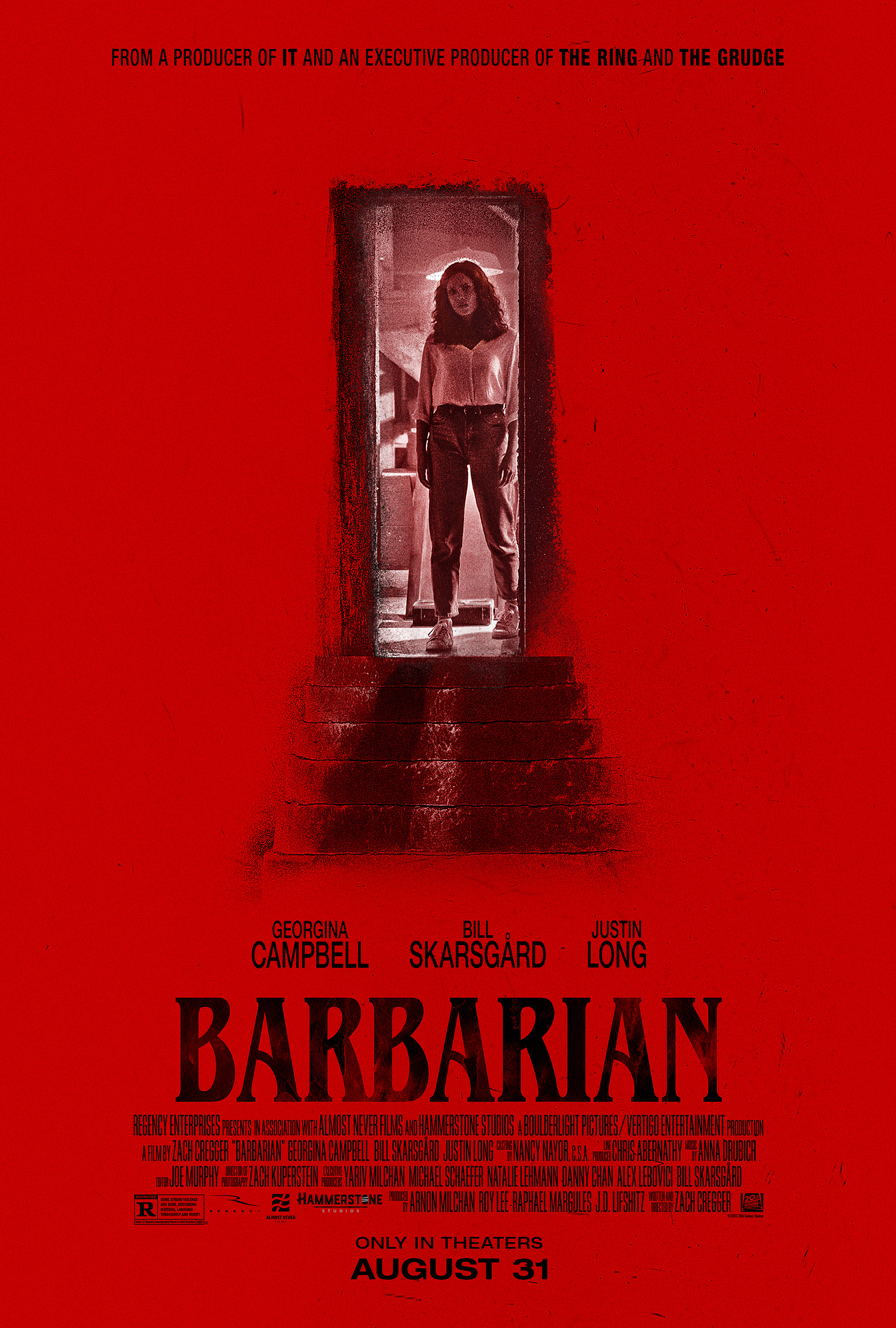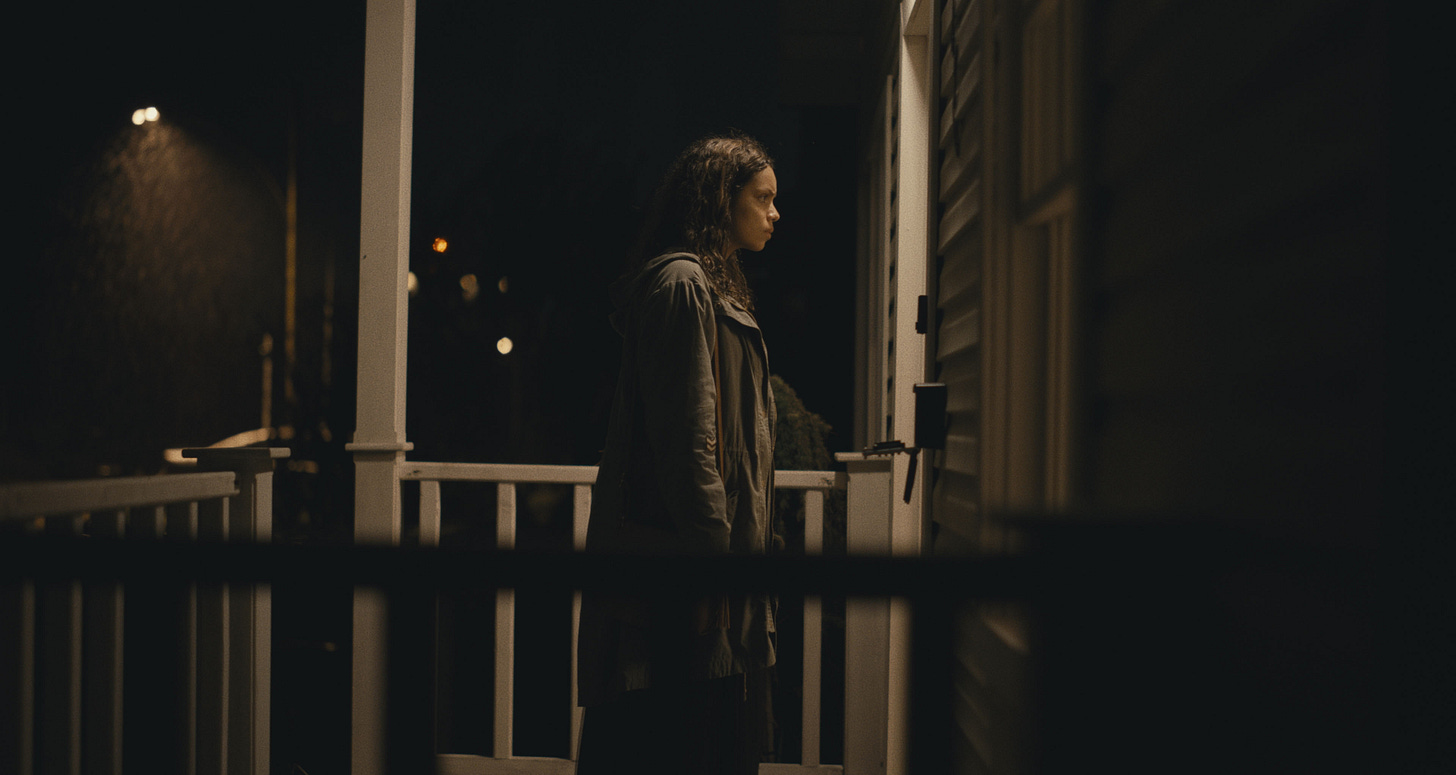Mary Shelley's "Barb—" Oops, I meant Zach Cregger's "Barbarian" Makes us Question Herodom
The Age Old Adage: Who is The Monster and Who is The Man?

What the fuck?
Was my initial reaction upon watching this movie. Granted, I don’t even like horror as a genre so anything of the sorts is always going to be low on my to-watch or to-enjoy list.
The string of events that led me to watch this movie against every better judgement and every other movie I would rather watch:
Twas brother’s birthday.
Brother wanted to watch Barbarian.
Brother told us it was a comedy.
As trusting and then as bamboozled as I was, my family and I carried on watching what began as uncomfy, tension-filled scenes, dropping a massive jumpcut to fucking LA and a wannabe actor about to be cancelled for being a massive dick, and then shooting us back into the perverted past (which was beautifully rendered despite the icky feelings we were meant to experience) and finally back to the present soooo
There’s a lot that goes on here. The movie really does feel like it could be separated at very specific points (if you watch it, you know EXACTLY the points I mean, where the act breaks are so clear it’s like someone badly stitched together a poor man’s kneecap, like some mismatched monster Shelley wrote to us about in 1818) and like it’s three separate short films smashed into one really long film.
Not being a horror buff, I watched this with shallow breaths and fingers in front of my eyes to protect what little I could.

We begin this movie on a mistake: an overbooked Airbnb in Detroit, Michigan and awkward protagonists meeting and making friends. Key word being awkward because the entire first act is built on this awkward tension that never gets fully resolved, just pushed to the side.
Locked doors open, floorboards creak, stupid basement doors trap unsuspecting victims in the terrors of the dark and the damp and the dungeons.
Calamity strikes and we get our first taste of the monstrosity set to dominate this movie
AND THEN WE ARE IMMEDIATELY THROWN INTO A BEAUTIFUL CALIFORNIA SUNSET PROBABLY ON THE PACIFIC COAST HIGHWAY WITH UPBEAT, PEPPY MUSIC.
This cut is so jarring because it is smashcut from such a violent, traumatic scene that it is so wildly out of place, I couldn’t stop laughing. It is a funny edit and the release in tension is so relieving, but that allows the tension to explode upwards exponentially as we progress to the next half of the film.
From here on, the stories intersect at the Airbnb and we learn more of its gruesome history and the darkness that stains its soil.
We meet horrid, terrible, disgusting characters, but the most amazing thing about this movie is that the one closest in appearance to a monster, is the least monstrous one of all.
“Nightmares exist outside of logic, and there’s little fun to be had in explanations; they’re antithetical to the poetry of fear.”
—Stephen King
Feminism

It took me the entire movie and then the final 2 minutes of the film for me to realize that this is a feminist movie.
It’s kind of hard to see that as the gore spills from the screen and horrible, monstrous things prey on those unlucky souls, but I would argue that Tess (Georgina Campbell) is our main protagonist, to hell with Keith (Bill Skarsgård) and AJ (Justin Long) and actual pain and suffering for Frank (Richard Brake). We meet her first and she immediately wins us over with her plight and the compassion she shows to others who don’t deserve it, from the beginning of the movie to the end.
Of course, she does some questionable things that had everyone in my family yelling something awful at her, but for the most part, she plays a very practical character. She thinks things through, she is aware of her place and her vulnerabilities as a woman in this world, and she works around it.
Yet, the idea of women having power is twisted and subverted in ugly ways in this film. As aware as Tess is of her fragile status in this world (in the horror genre as the final girl trope and in the world at large), she still succumbs to the men around her and her compassion, that which makes us love her, is the immediate key to her downfall.
She gets trapped in the dungeon because she tries to save Keith. She goes back to the house after escaping because she doesn’t want to abandon AJ. She gets shot because she wants to help others.
Her compassion is her ruin, the maternal and caring feelings stemming from her femininity causing her pain and suffering. This is all subverted at the end with The Fall and The Ugly Swan Dive, switching Tess from the Prey to the Protected in a grandiose show of corrupted maternal love and I absolutely gobbled that shit up.
It made me feel bad. For all the wrong reasons.
But Tess is ultimately saved by an act of love, as wrong and fucked up as it is because that is what IT has always known.
As abused as all the women are in this movie, the final cycle of malice and violence ends with an act of love. It ends with a mother and her daughter and that was beautiful (in a really weird, kind of uncomfortable way. Like if Encanto was splashed with the horror genre and depressing).
Monsters Made

Like Mary Shelley’s Frankenstein, the Barbarian we meet is the bastard fucktart of a father that sired the monster we see. And just like in Frankenstein, we see the title and immediately think of the milk monster, not the man who created the thing we learn to abhor. Though each one’s name has become synonymous with their monster, Victor Frankenstein and Frank are to each story the worst kind of demon any writer could have cooked up.
Here we watch as a depraved man has his disgusting way with multiple, defenseless women and we stack on more crimes and human rights violations so we can shame and viscerally reject anything and everything associated with that man. Especially so when we see his progeny: mistreated, abused, and holed away from the world so it knows no right or wrong or good or bad.
To that degree, the monster is…a child. Violent, aggressive, quasimodo-like in appearance— but so hidden from the world as to be considered innocent. Definitely innocent from the sins of its father, as it is the result of the horrors in that basement and could no more control its fate than a bird can keep from flying.
That monster is raised in a terrible environment and that is reflected in how it reacts to the world.
And in yet another parallel to Frankenstein, we see how the abandonment of such a creation wreaks havoc and chaos in the world, especially when its creator takes no responsibility for what they have done.
I don’t know if the monster here deserves redemption. Everyone deserves a second chance, and this monster was dealt the shittiest hand I have ever lived to see, but after a lifetime of murder and death and abuse, is one act of goodness, no matter how pure intentioned or seemingly innocent, enough to cleanse the sins of their father?
In the living situation, in the dungeon it called home, in the fucked up family tree of incest it is spawned from, is this enough to crucify the monster for only doing what it was taught to do?
And that’s why I felt guilt and uneasiness come the credits of this movie. This monster is fucked up. And it’s done fucked up things. But like how Tess, young and beautiful and womanly Tess, is maternal in her compassion, this monster tries to do the same and fails but doesn’t even know it.
Women in the Horror Genre

Woman in the horror genre are powerful, but feared. And I personally have a problem when stories about powerful women always have to be paired with some sort of malicious violence or horror genre (Midsommar, The Love Witch, Don’t Worry Darling, Scream, Silence of the Lambs, Crimson Peak to name a few. It’s the tropes but it’s also a way of telling the narrative that twists womanhood into something inherently contradictory yet also empowering).
Yes the women in some horror movies are strong and independent and intellectual, especially when they are fulfilling the final girl trope. But they are always pressed to a wall and their survival hinges on the purity of their convictions and their innocence and that makes for a Mary Sue in disguise kicking ass because someone asked her to politely.
The fact that the recent slew of horror movies pairs feminism with the genre leads me to believe that this is a new trope, redesigned from the previous ones already established and one that I am not a fan of. Why must stories about women and womanhood only be spoken of in hushed whispers or with a curtain of gore?
Why is there an upswing trend of horror movies dishing out a feminist agenda in the final minutes, like a paltry afterthought to surprise the audience?
Is the most upsetting surprise supposed to be the realization that women are inherently powerful?
But y’know what? I don’t like horror movies. That most definitely affected the appeal (or lack thereof) of this movie for me, but if you agree or disagree with my thoughts, I’d love to hear them! Convince me of why I’m wrong >:)





I am one of the referenced family yelling at main protagonist. While I eat my lunch, I sit here and ponder about the man living by the water tower. He did not deserve that untimely demise. ‘nough said.